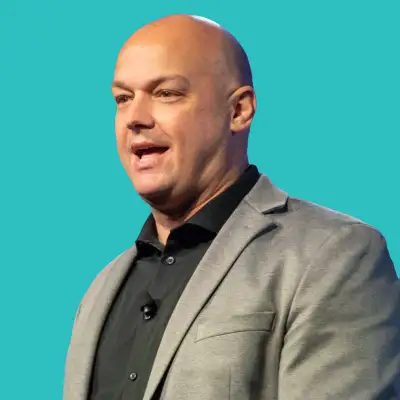Sales-Led Growth Isn’t Dead, It’s Just Misunderstood with Jeff Keplar | Coach2Scale Episode #94
Jeff Keplar, former sales executive at Oracle, MapR, and Google, joins Coach2Scale to challenge one of today’s loudest narratives in SaaS: that product-led growth has made traditional selling obsolete. In this candid, no-nonsense conversation with Matt Benelli, Jeff lays out why complex, high-stakes enterprise deals still demand skilled sellers, strong managers, and real leadership in the field, not just slick UX and freemium funnels. He explains why sales-led growth is often poorly executed, not outdated, and how the caricature of the “golf-playing rep” is holding companies back from serious revenue performance.
This episode is a must-listen for CROs, VPs, and FLMs navigating the blurred lines between coaching, leadership, and execution. Jeff unpacks what makes a sales leader worth following, why frontline managers often fail (and how to fix it), and how real coaching, not just pipeline reviews, builds resilient teams. From scaling at Oracle to advising modern startups, Jeff shares lessons that cut through the noise and help leaders build teams that win the right way.
Key Takeaways
1. Leadership isn’t granted by title, it’s earned in the field
Sales managers gain real influence by showing up with their team, facing the same pressure, and modeling accountability, not by hiding behind their job title.
2. Sales-led growth isn’t outdated, it’s just misunderstood.
Many critics confuse poor execution with obsolescence; in reality, complex sales still require human insight, coaching, and influence that product-led strategies alone can’t deliver.
3. Stop promoting 'super reps' and expecting them to be great managers
The skill set that drives individual performance often lacks what’s needed to coach, develop, and retain a team, especially in high-growth or enterprise contexts.
4. Great sales leaders don’t kiss up and kick down, they build teams that follow them anywhere
The mark of strong leadership is not upward politics but whether former team members would choose to work with you again.
5. Salespeople need coaching beyond the deal.
Too many 1:1s are just pipeline checks; true coaching focuses on skills, behaviors, and long-term development that compound over time.
6. In enterprise sales, the product doesn’t close the deal; people do
Unlike self-serve SaaS tools, enterprise software buyers need trust, consultation, and risk mitigation that only a well-prepared rep can deliver.
7. When reps are treated like resources, they leave
High attrition often traces back to poor or absent development; reps stay when they feel seen, supported, and challenged.
8. Managers must be the rep’s advocate, even when it costs political capital
Defending your team when it's hard is the kind of leadership people remember and rally around, especially in performance management decisions.
9. Friendship and leadership aren’t mutually exclusive.
While being “one of the crew” can backfire, relationships built on trust and mutual respect lead to better coaching conversations and loyalty.
10. Coaching is influence, not control.
The goal is to shape behavior through insight and conversation, not compliance, which is also what great selling looks like.
This episode is a must-listen for CROs, VPs, and FLMs navigating the blurred lines between coaching, leadership, and execution. Jeff unpacks what makes a sales leader worth following, why frontline managers often fail (and how to fix it), and how real coaching, not just pipeline reviews, builds resilient teams. From scaling at Oracle to advising modern startups, Jeff shares lessons that cut through the noise and help leaders build teams that win the right way.
Key Takeaways
1. Leadership isn’t granted by title, it’s earned in the field
Sales managers gain real influence by showing up with their team, facing the same pressure, and modeling accountability, not by hiding behind their job title.
2. Sales-led growth isn’t outdated, it’s just misunderstood.
Many critics confuse poor execution with obsolescence; in reality, complex sales still require human insight, coaching, and influence that product-led strategies alone can’t deliver.
3. Stop promoting 'super reps' and expecting them to be great managers
The skill set that drives individual performance often lacks what’s needed to coach, develop, and retain a team, especially in high-growth or enterprise contexts.
4. Great sales leaders don’t kiss up and kick down, they build teams that follow them anywhere
The mark of strong leadership is not upward politics but whether former team members would choose to work with you again.
5. Salespeople need coaching beyond the deal.
Too many 1:1s are just pipeline checks; true coaching focuses on skills, behaviors, and long-term development that compound over time.
6. In enterprise sales, the product doesn’t close the deal; people do
Unlike self-serve SaaS tools, enterprise software buyers need trust, consultation, and risk mitigation that only a well-prepared rep can deliver.
7. When reps are treated like resources, they leave
High attrition often traces back to poor or absent development; reps stay when they feel seen, supported, and challenged.
8. Managers must be the rep’s advocate, even when it costs political capital
Defending your team when it's hard is the kind of leadership people remember and rally around, especially in performance management decisions.
9. Friendship and leadership aren’t mutually exclusive.
While being “one of the crew” can backfire, relationships built on trust and mutual respect lead to better coaching conversations and loyalty.
10. Coaching is influence, not control.
The goal is to shape behavior through insight and conversation, not compliance, which is also what great selling looks like.



